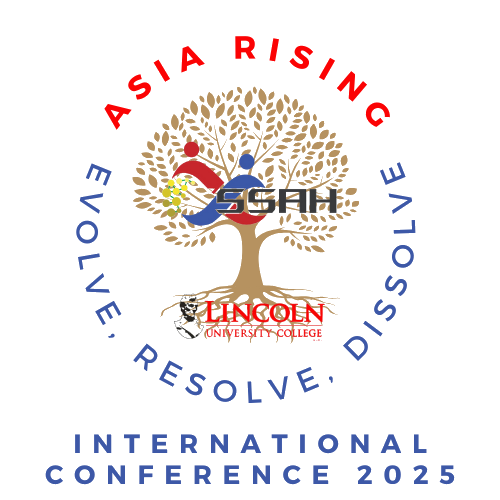Bridging Wisdom and Practice: Indigenizing Social Work for Sustainable Community Empowerment in China
Ning Wenying
Lincoln University College, Malaysia
Email: 553231951@qq.com
Abstract
In China, the integration of indigenous knowledge into social work practice is a crucial step toward creating more culturally sensitive and sustainable solutions to social challenges. Indigenous wisdom, derived from diverse ethnic groups, local traditions, and community-based practices, offers valuable insights into addressing issues such as mental health, poverty, and family dynamics. This explores the potential for indigenization in Chinese social work, focusing on how local knowledge systems can be effectively integrated into contemporary social interventions. Drawing on case studies from various regions in China, including rural areas and ethnic minority communities, this highlights successful initiatives where traditional practices have been used to tackle pressing social issues such as elder care, conflict resolution, and community health. These examples demonstrate the importance of combining local knowledge with modern social work methods to create more effective, context specific strategies. This also critically examines the challenges of applying Western-oriented social work models in China, where cultural values and social structures differ significantly. It argues for a rethinking of social work education and practice to embrace indigenous epistemologies, fostering a more inclusive approach that acknowledges and values traditional knowledge. This includes revising curricula, encouraging community participation, and promoting interdisciplinary collaboration. Ultimately, this advocates for a new model of social work in China, one that integrates indigenous wisdom with professional practice to empower communities and create sustainable, culturally relevant social interventions, contributing to a more just and inclusive society.
Poverty as a Structural Determinant of Underage Marriage: A Review and Social Work Implications
Atieka Azmi1, Azlin Hilma Hillaluddin1, Abd Razak Abd Manaf1,
1School of Applied Psychology, Social Work and Policy, Universiti Utara Malaysia,
Kedah, Malaysia
Email: atiekaazmi@gmail.com /noor_atieka_a@ahsgs.uum.edu.my
Abstract
Underage marriage remains a significant issue in low- and middle-income countries, where poverty acts as a structural determinant driving early marriage practices. Families facing economic hardship often view marriage as a strategy to alleviate financial burdens, leading to the transfer of parental responsibility or securing dowries. This practice, while seen as a solution to immediate economic challenges, carries long-term consequences for adolescent girls, particularly in terms of education, health, and emotional well-being. The review critically examines the link between poverty and underage marriage, focusing on how socio-economic conditions shape the prevalence of early marriage. Through a narrative literature review, the study analyses peerreviewed articles, global reports, and case studies from Southeast Asia (2010–2024) sourced from Scopus, Web of Science, and Google Scholar. Systematic analysis revealed that poverty, compounded by limited education, gender inequality, and entrenched social norms, significantly contributes to the persistence of underage marriage. Social work interventions should be rooted in poverty-informed frameworks, integrating community education, gender-sensitive programming, and policy advocacy aimed at breaking the cycle of poverty and early marriage. Social workers are in a unique position to lead efforts that address both individual and systemic factors, advocating for protective environments that empower at-risk youth. Addressing poverty as a driver of underage marriage requires systemic interventions, with social workers playing a pivotal role in both direct service provision and macro-level advocacy for vulnerable populations.
Keywords: Underage marriage; poverty; structural inequality; adolescent girls; social work intervention
Digital Realities: Social Media's Influence on Adolescent Self-Esteem in Social Work
Solehatun Shakri1, Azlin Hilma Hillaluddin1, Zarina Mat Saad1,
1School of Applied Psychology, Social Work and Policy, Universiti Utara Malaysia, Kedah,
Malaysia
Email: solehatun91@gmail.com, nor_solehatun_it@ahsgs.uum.edu.my
Abstract
The rise of social media has dramatically shaped how teenagers perceive themselves and interact with the world, making self-esteem a growing concern within youth development and social work practice. With platforms such as Instagram, TikTok, and Snapchat becoming central to adolescent identity formation, social media usage has been found to greatly influence the self-esteem of teenagers. This article aims to review existing literature to understand the psychological and social implications of digital engagement, particularly how curated online personas, peer comparison, and digital validation affect adolescents’ self-worth. This article synthesizes findings from peer-reviewed journals, psychological studies, and global reports published between 2015 and 2024 using a literature review methodology. Key themes identified include the role of likes and comments in shaping self-image, the influence of influencers and idealized beauty standards, and the moderating effects of gender, socioeconomic background, and parental involvement. The review highlights both positive and negative correlations: while some studies suggest that social media offers spaces for expression and support, many point to increased levels of anxiety, body dissatisfaction, and low self-esteem, especially among female teens and those with high screen time. These findings carry important implications for social work education and practice. There is a pressing need for social workers, educators, and mental health professionals to incorporate digital literacy and resilience-building programs in youth outreach initiatives. Social work curricula should also address the impact of digital culture on youth psychosocial development, preparing future practitioners to engage with technology-driven challenges in adolescent well-being. In conclusion, social media plays a significant role in shaping teenage self-esteem, warranting urgent attention from the social work field. Future research must continue to explore these dynamics and support the development of proactive, evidence-based interventions that strengthen adolescent mental health in the digital era.
Keywords: Social Media, Teenagers, Self-Esteem, Educational Impact, Social Work Practice
